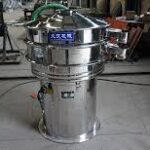
Tesla investors will vote Thursday on several proposals from activist investors aimed at pressuring the company and its chief executive Elon Musk to change the way they treat workers, for the automaker’s board of directors Adding more independent voices and revealing more information about how it lobbied government officials.
Tesla is widely credited for pioneering the electric vehicle market and pushing the auto industry on a path to slashing greenhouse gas emissions. But the company has been accused of racism at its California factory, union destruction and a boardroom crowded with people close to Musk. In May, S&P removed Tesla from the S&P 500 ESG Index, which lists companies that meet certain environmental, social and governance standards.
“No one doubts Tesla and Musk’s tremendous historic achievement,” said Daniel Ives, an analyst at Wedbush Securities.
But he said investors were concerned about Musk’s failed bid for Twitter, increased competition in the electric vehicle market and Tesla’s production problems. “Musk has had an amazing journey, but you’re starting to see some frustration among investors,” Mr Ives said.
Activist shareholders have been working to change the behavior of Tesla and other companies in recent years, in some cases backed by big investors like BlackRock and Vanguard. But the movement has drawn backlash from conservative lawmakers and some business executives. Mr Musk calls ESG in May “An outrageous scam.”
Read more about electric vehicles
The popularity of electric vehicles is soaring around the world as the overall auto market stalls.
Activist investor groups have submitted eight non-binding proposals that will be voted on Thursday afternoon at Tesla’s annual meeting at Tesla’s factory in Austin, Texas. Last year, there were five such proposals, all of which failed.
Tesla management opposed all eight resolutions. The board’s proposed 3-to-1 stock split is expected to win broad shareholder support and would make Tesla stock, which currently trades above $900, more accessible to individuals and employees.
The shareholder resolution includes a measure requiring Tesla to disclose more information on whether its government lobbying is consistent with efforts to limit climate change. “Tesla is significantly behind in environmental, social and governance-related disclosures,” said the resolution filed by the Nathan Cummings Foundation and the Green Century Equity Fund.
Other resolutions call for Tesla to make it easier for shareholders to nominate board candidates, give employees more leeway to file lawsuits in court and monitor more closely whether the cobalt used in its batteries is mined using child labor.
The New York State Common Retirement Fund, which manages the state employee pension plan, filed a resolution requiring management to submit an annual report on its efforts to prevent racial discrimination and sexual harassment. The California Department of Fair Employment and Housing sued Tesla in February after receiving hundreds of employee complaints that they were racially slurs, assigned manual labor and denied transfers and promotions.
In its response to the resolution, Tesla said it “does not tolerate discrimination, harassment, retaliation or any abuse of employees” in the workplace or in work-related situations.
Tesla insists its mission is to “accelerate the world’s transition to sustainable energy.” But shareholder criticism of other aspects of the company and Musk’s behavior has grown.
Several shareholder proposals were endorsed by Institutional Shareholder Services, which advises large investors on how to vote at the annual meeting. A proposal backed by the company but opposed by Tesla management would allow shareholders to nominate alternative candidates for the board.
Tesla has often faced criticism, and its board, which includes Elon Musk’s brother Kimbal Musk, cannot stop the CEO from doing or saying things that hurt the automaker.
Tesla said in its response that adding more independent directors in recent years, allowing shareholders to nominate members “could be exploited by corporate predators.”
Shareholder proposals have received strong support in the past. Last year, 46 percent of shareholders voted in favor of a proposal challenging Tesla’s policy that requires employees to resolve discrimination and sexual harassment complaints in an arbitrator rather than in court. The resolution was submitted by Nia Impact Capital of Oakland, California.
Last year, the New York chapter of the Sisters of the Good Shepherd filed a resolution requiring Tesla to disclose the human rights impact of its operations.
Kristin Hull, chief executive of Nia Impact Capital, said activist firms like her have spearheaded the fight against Tesla management, while larger, more influential institutional shareholders have stayed behind the scenes.
“It’s smaller asset managers and women-led asset managers and nuns leading it all,” Dr. Hull said. Major shareholders “just pick up the phone,” she said.



